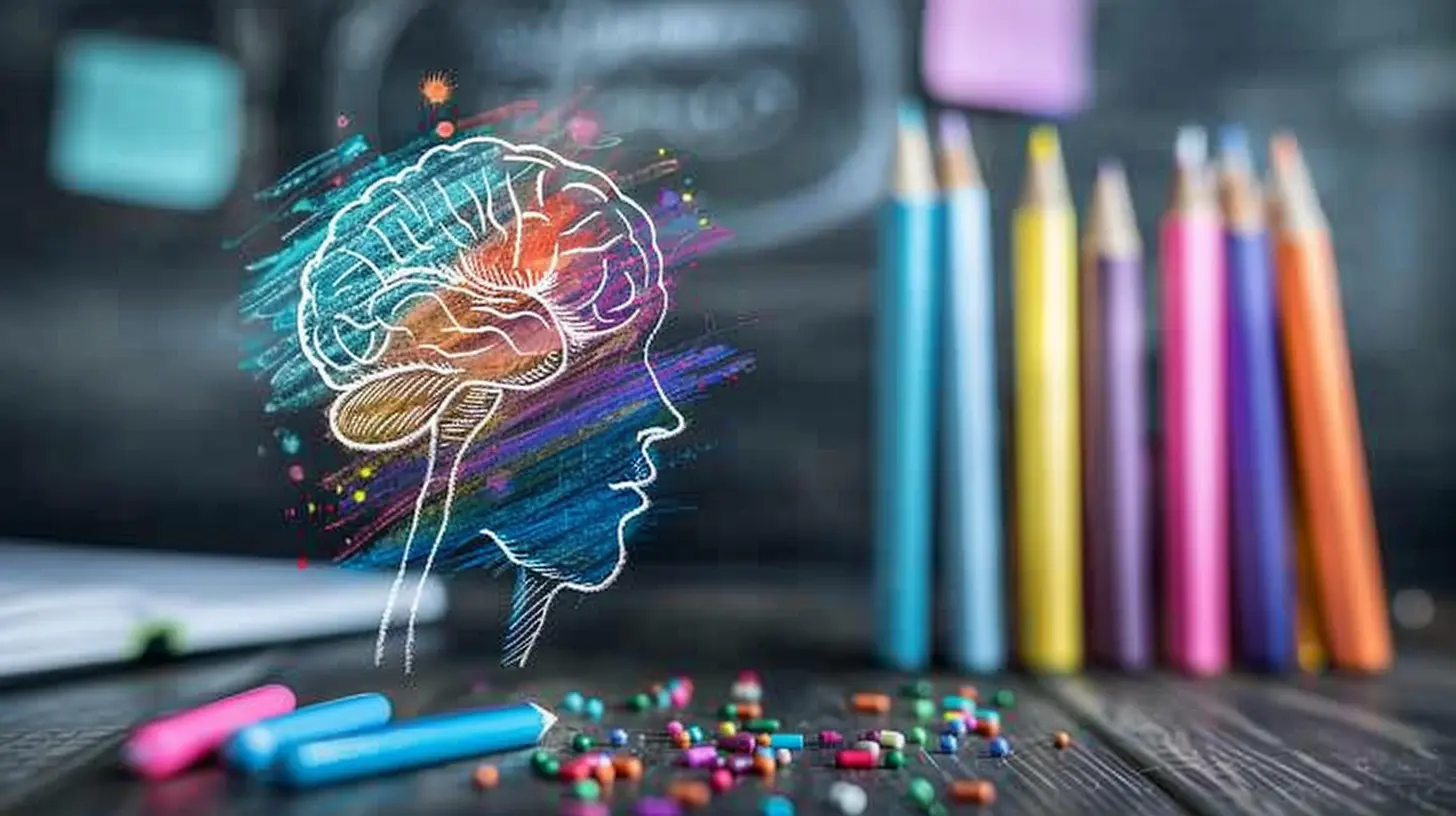6 December 2024
When we think of therapy, we often imagine talking to a therapist about our problems, emotions, and thoughts. While talking is undeniably a significant part of the therapeutic process, there's another essential tool that often works behind the scenes — cognitive assessments.
Cognitive assessments might sound a bit technical or even intimidating, but they play an essential role in therapy. They help therapists get a clearer understanding of how your brain functions, how you think, remember, and solve problems. Think of them as the diagnostic tools that give therapists deeper insights into your mental processes, allowing them to provide more tailored and effective treatments.
But what exactly are cognitive assessments, and why are they so crucial in therapy? That’s exactly what we’re diving into today.

What Are Cognitive Assessments?
Let's start with the basics.Cognitive assessments are tests or evaluations designed to measure various cognitive functions. These include memory, attention, problem-solving, reasoning, and language skills. In simpler terms, they gauge how well your brain processes information.
These assessments can take many forms, from paper-and-pencil tests to more interactive digital tasks. Some might ask you to recall a list of words, solve puzzles, or even respond to visual stimuli. The goal? To understand how your brain works, where it might struggle, and where it excels.
Types of Cognitive Functions Assessed
Cognitive assessments typically evaluate several key areas of mental functioning, including:- Memory: How well can you retain and recall information? This could range from short-term memory (what you had for breakfast) to long-term memory (your childhood home address).
- Attention and Concentration: How well can you focus on a task? Can you stay engaged despite distractions?
- Problem-Solving and Reasoning: How effectively do you tackle challenges? Can you think critically and logically?
- Language Skills: Can you process and produce language efficiently? This includes understanding words, forming sentences, and finding the right words to express yourself.
- Processing Speed: How quickly can you take in and use information? This might involve how fast you read, analyze, or respond to stimuli.
- Executive Functioning: This is your brain's "control center." It helps with planning, decision-making, and regulating your behavior.

Why Are Cognitive Assessments Important in Therapy?
So, why should we care about cognitive assessments in therapy? Aren’t therapy sessions just about understanding emotions and thoughts? Well, yes and no.Therapy is about addressing feelings, behaviors, and mental health concerns, but these issues are often tied directly to cognitive functioning. Here’s where cognitive assessments come into play.
1. Personalized Treatment Plans
Imagine going to a doctor with a vague set of symptoms, like a persistent headache or fatigue. Without the right tests, the doctor might just throw out guesses on what’s wrong. This isn’t much different in therapy.Cognitive assessments give therapists a roadmap of how your brain works. They provide detailed insights that allow therapists to create a personalized treatment plan. Instead of a one-size-fits-all approach (which rarely works), your therapist can focus on specific areas that need attention.
For example, if a cognitive assessment shows that you have trouble with memory, your therapist might focus on strategies to improve recall or help you develop tools to better manage information.
2. Identifying Underlying Issues
Sometimes, the problems we face aren’t immediately visible on the surface. Cognitive assessments can uncover underlying cognitive issues that might be contributing to emotional or behavioral problems.For instance, someone experiencing anxiety might also struggle with attention or processing speed. Addressing these cognitive challenges alongside the emotional ones can lead to more effective therapy outcomes. It’s like peeling back layers of an onion — the deeper you go, the clearer the picture becomes.
3. Tracking Progress Over Time
Another significant benefit of cognitive assessments is their ability to track progress. When you're in therapy, it's important to see if the interventions are actually working. Cognitive assessments can be used periodically to measure improvements or identify areas that still need work.Let’s say someone is undergoing treatment for ADHD. Initial cognitive assessments might show particular struggles with attention and executive functioning. After a few months of therapy, a follow-up assessment can reveal whether these areas have improved, helping both the therapist and the client gauge the effectiveness of the treatment.
4. Spotting Cognitive Decline Early
Cognitive assessments aren’t just for those with mental health concerns; they can also play a vital role in detecting early signs of cognitive decline, especially in older adults. Regular assessments can help identify early stages of conditions like Alzheimer's or dementia, which can then be addressed with proactive strategies.In this case, cognitive assessments act as early warning systems, allowing for interventions that might slow down or mitigate the effects of cognitive decline.

How Cognitive Assessments Are Used in Different Therapies
Now that we understand the importance of cognitive assessments, let’s look at how they are applied in different types of therapy.1. Cognitive Behavioral Therapy (CBT)
Cognitive Behavioral Therapy (CBT) is one of the most well-known and widely used forms of therapy. It focuses on identifying and changing unhelpful thought patterns. Cognitive assessments are often used in CBT to identify specific cognitive distortions — like black-and-white thinking or catastrophizing — that might be contributing to a person’s mental health issues.For example, if someone is struggling with depression, cognitive assessments can help pinpoint specific negative thought patterns or cognitive biases. These insights allow the therapist to work with the client on restructuring these thoughts and improving their mental well-being.
2. Neuropsychological Therapy
Neuropsychological therapy is specifically designed to help individuals who have experienced brain injuries, strokes, or neurological disorders. Cognitive assessments are central here, as they help therapists understand the extent of cognitive impairment and develop rehabilitation strategies.In these cases, therapists often use cognitive assessments to create a baseline of the client’s cognitive functioning post-injury. They then use this information to guide interventions and track recovery over time.
3. Speech and Language Therapy
For individuals with speech or language disorders, cognitive assessments help identify the specific areas of language processing that might be affected. Whether it’s difficulty understanding spoken language, forming sentences, or finding the right words, these tests help speech therapists tailor their treatment approach.For example, someone who has experienced a stroke might have difficulties with both speech and memory. A cognitive assessment can clarify the nature and severity of these issues, giving the speech therapist a clear understanding of where to begin.
4. Learning Disabilities and ADHD Counseling
Individuals with learning disabilities or ADHD often struggle with specific cognitive functions, such as attention, memory, or executive functioning. Cognitive assessments help identify the particular areas of difficulty, allowing therapists to implement strategies that target these challenges.For example, children diagnosed with ADHD might show significant difficulties with sustained attention and impulse control. Cognitive assessments provide therapists with the data needed to develop strategies that help the child improve focus and manage their behaviors more effectively.

Cognitive Assessments Aren’t Just for Diagnosing — They’re for Empowering
It’s easy to view cognitive assessments as clinical, cold, or purely diagnostic. But the truth is, they’re tools for empowerment.These assessments give you — and your therapist — a deeper understanding of how your brain works. Armed with that knowledge, you can take control of your mental health journey.
Imagine you’re trying to fix a car engine. Without understanding how the engine works or where the problem lies, you’re just tinkering aimlessly. But if you have a diagnostic tool that pinpoints the issue, you can address it directly and effectively. That’s what cognitive assessments do in therapy — they provide clarity, direction, and purpose.
How to Approach a Cognitive Assessment
Okay, so now that you know how critical cognitive assessments are, you might be wondering: “Should I ask for one?”The answer depends. If you’re experiencing specific cognitive challenges — such as memory problems, difficulties focusing, or trouble solving problems — it might be worth discussing cognitive assessments with your therapist. They can help determine if an assessment would be beneficial and explain how it could enhance your therapy experience.
And don’t worry — cognitive assessments aren’t something to fear. They’re not about “passing” or “failing.” Instead, they’re about gaining insights that can help you in your therapeutic journey.
Final Thoughts
Cognitive assessments, while often behind-the-scenes, play a crucial role in therapy. They provide valuable insights into how your brain works, helping to create personalized treatment plans, track progress, and uncover hidden challenges that might be contributing to emotional or behavioral problems.By understanding your cognitive strengths and weaknesses, you can work with your therapist to tackle the root causes of your struggles — not just the symptoms. So, the next time you think of therapy, remember that it’s not just about talking. Sometimes, it’s also about taking a deeper dive into how your mind operates.











Sylvia Rios
Cognitive assessments deepen understanding and enhance therapy.
February 3, 2025 at 4:07 PM